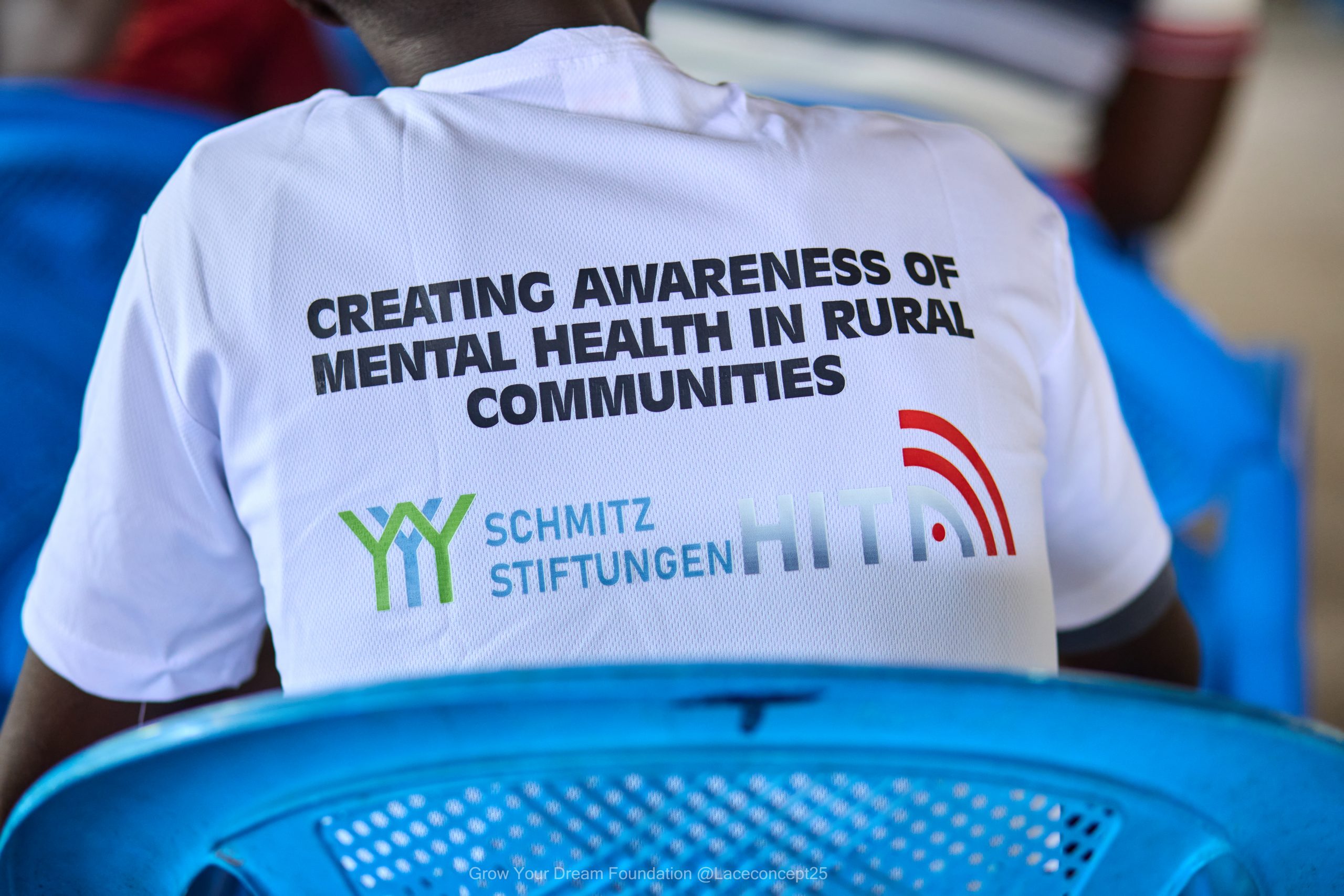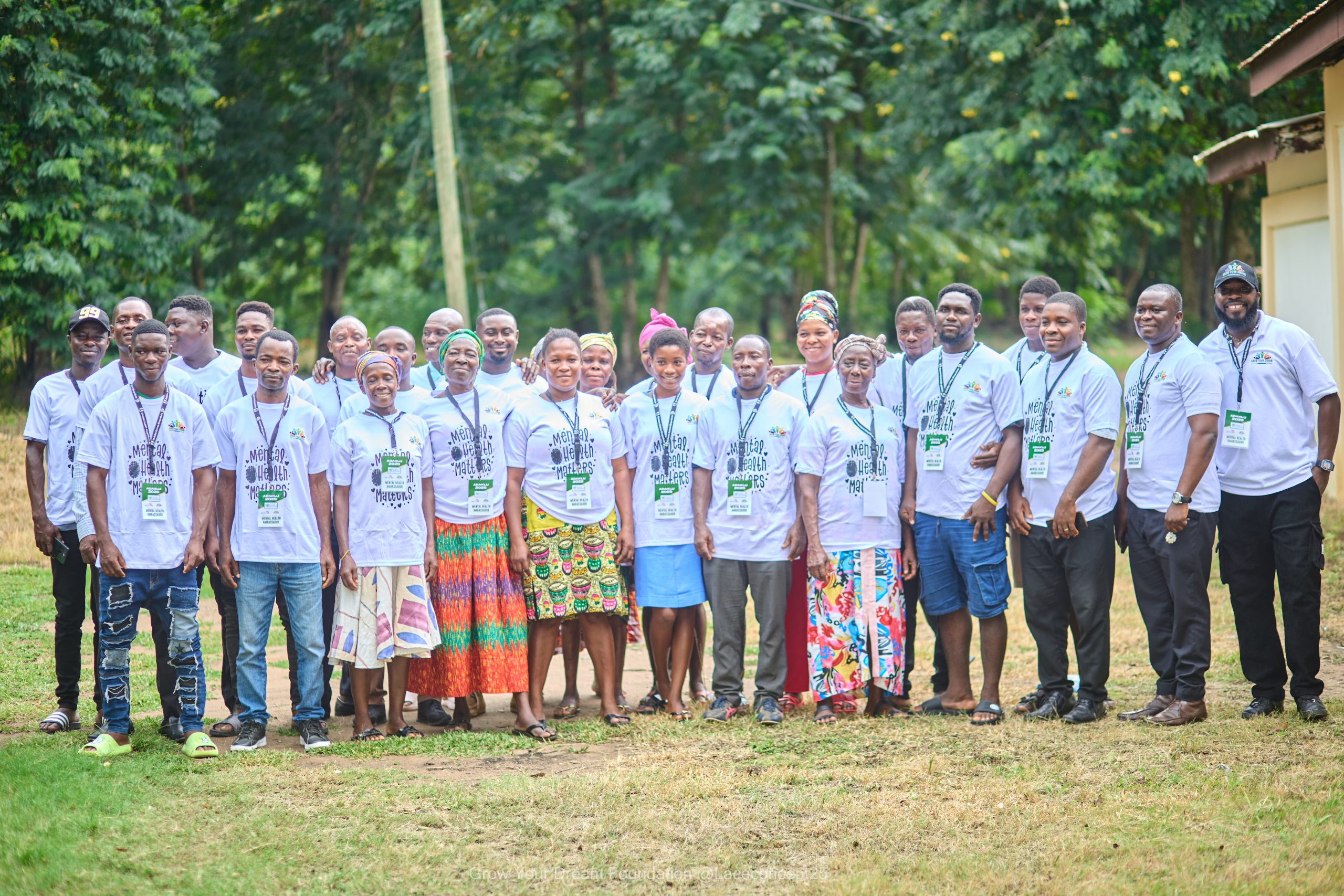We, the Grow Your Dream Foundation, are leading a focused one-year effort from July 2025 to June 2026 in the Adaklu and Ho Districts, Volta Region, to strengthen mental health and everyday well-being by combining capacity building with hands-on work in communities and schools. Our first step is to equip our own team: two colleagues will complete all eight modules of the WHO QualityRights programme and, in parallel, we will refine cooperation with the District Health Directorate and allied NGOs such as MindFreedom Ghana so that training translates directly into local practice. We will then enter each community through the traditional protocol—meeting chiefs and elders—before convening gatherings to identify and train one Mental Health Ambassador per community who can spark regular, stigma-reducing conversations and connect people to help. Month by month, these activities will run in ten pilot communities—Ahunda Kpodzi, Amuzudeve, Dawanu, Dorkpo, Dzakpo, Gavorkorfe, Golokope, Kordiabe, Kpodoave and Seva—with support from our team and, where possible, a representative of the Ghana Health Service.
In schools, we will partner with three secondary schools in Adaklu and nearby Ho. Together with school leaders and Academic Counsellors, we will appoint a school Mental Health Ambassador, gather a baseline using the CAMI questionnaire, and then hold regular sessions with teachers, complemented by WhatsApp interaction between meetings. To know whether minds are changing, we will measure attitudes among residents and teachers (CAMI) and track mental-health literacy among staff (MHLS), aiming for a clear drop in negative attitudes and a meaningful rise in literacy over the project year.
Our approach bridges offline and online. We will prepare practical materials—handouts, posters, and Ewe-language infographics and short videos—and set up dedicated WhatsApp groups that keep momentum between meetings. We will also compile a reusable handbook so trained teachers and Ambassadors can run their own activities, and we will share resources openly for reuse. Beyond delivery, we will work closely with the Ghana Health Service and Ghana Education Service to align with district plans and to embed new practices.
This project responds to a stark reality: mental health services are scarce, the treatment gap is vast, and stigma and rights violations persist—especially in rural areas where conditions are often framed as spiritual rather than medical. Our goal is to shift those norms while signalling that effective care exists. We build on trusted relationships—safe spaces, gender-responsive clubs, and long-standing ties with communities and schools—to make that shift durable. We are realistic about risks like limited services and digital barriers, so we will mitigate through close coordination with providers and low-tech fallbacks (e.g., printed guides). By the end of the project lifetime, we expect a measurable reduction in stigma, stronger literacy among key multipliers, and a set of open, reusable tools that can scale across Adaklu and similar districts.


The project is funded by Germany’s Schmitz Stiftungen and German NGO Health Information Technologies for Africa (HITA) with a grant of €9,100 plus €3,029 co-funding.
See the report of the first workshop here.
Quarterly Activity Reports: